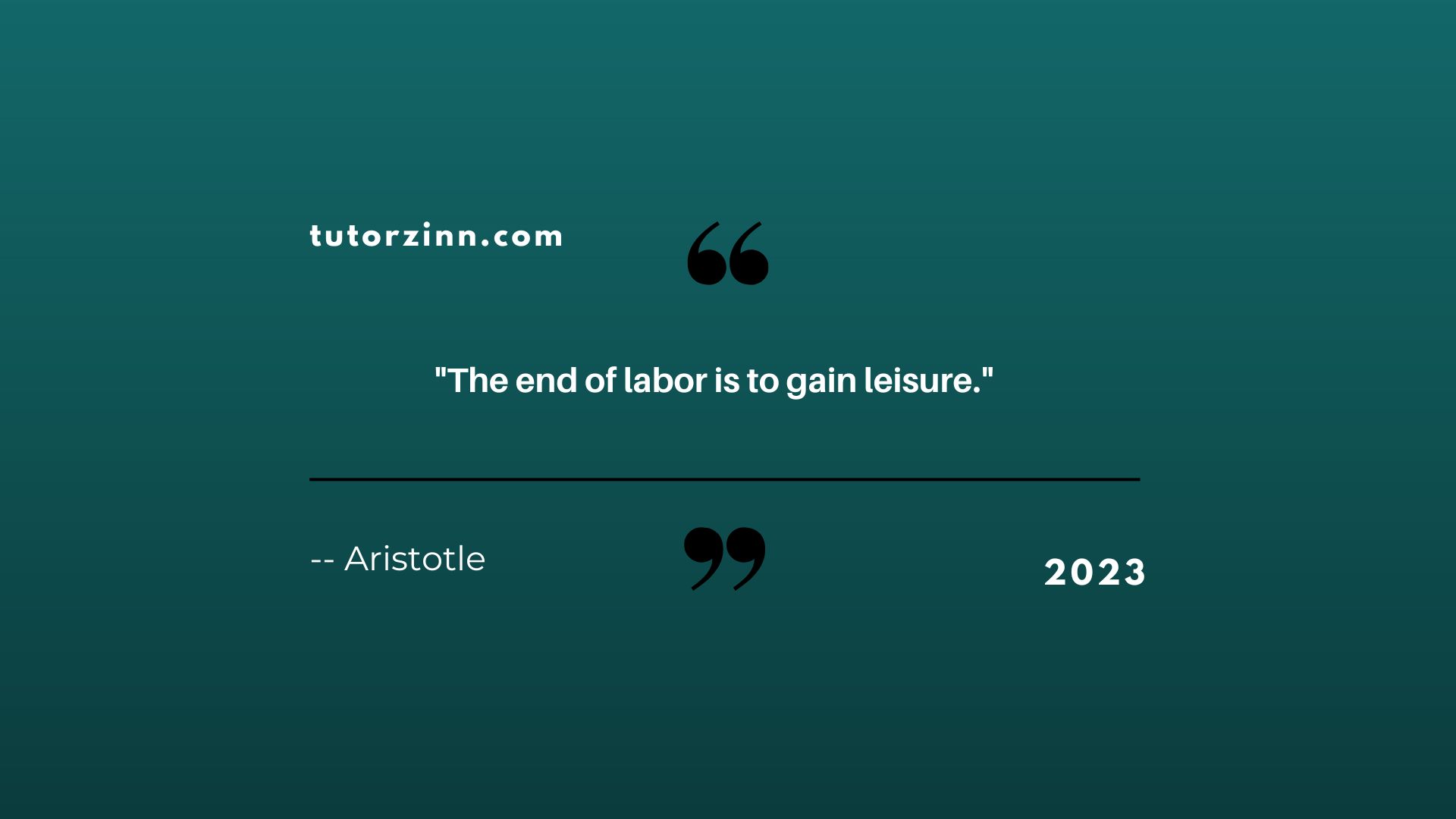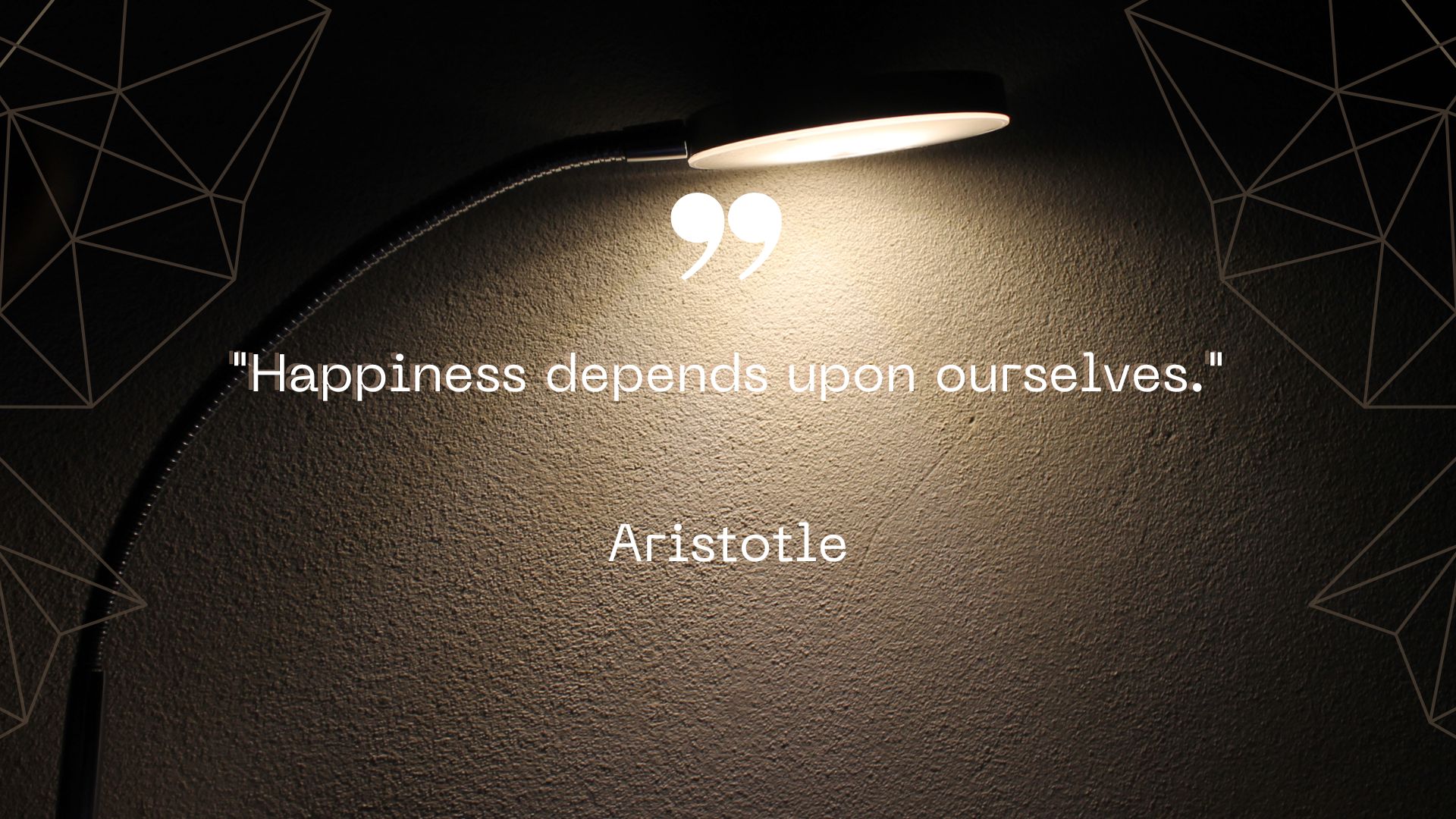“The end of labor is to gain leisure.”
— Aristotle
Aristotle, the ancient Greek philosopher, is widely regarded as one of the greatest thinkers in history. In his exploration of ethics and human flourishing, he touched upon various aspects of life, including the purpose of labor and its relationship to leisure. The quote, “The end of labor is to gain leisure,” encapsulates a profound insight into the value and significance of work in achieving a balanced and fulfilling life. Let’s delve deeper into this idea through the following subheadings.
- Understanding the Purpose of Labor: Aristotle believed that labor, or work, is an essential part of human life and society. It involves productive activities aimed at meeting the basic needs of individuals and contributing to the well-being of the community. Whether through agriculture, craftsmanship, or other professions, labor is seen as a means to sustain oneself and the broader society.
- The Pursuit of Eudaimonia: Central to Aristotle’s philosophy is the concept of eudaimonia, often translated as “flourishing” or “well-being.” He argued that the ultimate goal of human life is to achieve eudaimonia, which involves realizing one’s potential, cultivating virtues, and living a life of purpose and meaning. Labor, in this context, plays a vital role as a path toward achieving eudaimonia.
- Balancing Labor and Leisure: Aristotle’s view on labor is not one of endless toil but rather a means to an end. The end goal of labor is to attain leisure, which he perceived as a state of contemplation, intellectual growth, and spiritual enrichment. Leisure, in this sense, does not imply idleness but rather the freedom to engage in higher pursuits beyond the necessity of daily labor.
- The Value of Leisure in Intellectual and Moral Development: According to Aristotle, leisure provides individuals with the opportunity to engage in activities that foster intellectual and moral growth. This pursuit of knowledge, wisdom, and self-reflection contributes to the development of one’s character and virtues. In leisure, individuals can engage in philosophy, art, and meaningful conversations, which are crucial for personal enrichment.
- The Role of Work-Life Balance: Aristotle’s perspective on labor and leisure highlights the importance of maintaining a healthy work-life balance. While work is necessary for survival and societal functioning, an excessive focus on labor without adequate leisure can lead to a diminished quality of life. Achieving a harmonious balance between work and leisure allows individuals to lead more fulfilled and purposeful lives.
Conclusion:
Aristotle’s quote, “The end of labor is to gain leisure,” encourages us to reflect on the purpose of our daily toil and its role in our pursuit of a meaningful life. It emphasizes the significance of work as a means to achieve a state of leisure, where intellectual and moral development can thrive. By striking a balance between labor and leisure, we can work towards the realization of our full potential and a life of flourishing, echoing the wisdom of this ancient Greek philosopher in our modern world.




